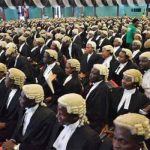Because there is little public power available, Nigerians spend about N30 trillion a year for self-generated, off-grid electricity.
However, the country might save more than three quarters of this yearly spending since steady power supply will be ensured by investments in the national grid system and an increase in public power supply revenue to N6 trillion. The total yearly revenue of the Nigerian Electricity Supply Industry (NESI) in 2023 was around N1 trillion, providing a clear portrayal of the mismatch in the power sector.
Adebayo Adelabu, the minister of power, provided a clear picture of the problems facing the electricity industry yesterday and emphasized the need for long-term investments and changes to guarantee a steady supply. At the Nigerian Oil and Gas (NOG) conference in Abuja in 2024, Adelabu gave a talk titled “Navigating Nigeria’s Pathway to Achieving Energy Security Sustainability on the Journey to Net Zero.”
He explained that an increase of N5 trillion in revenue from the national grid system would assure a continuous supply of energy across the country, as opposed to the N30 trillion currently spent on the generation of electricity from diesel, petrol, gas, and generators by individuals and enterprises.
Adelabu cited numerous studies on the power industry to support his claims. One report from 2023 showed that N16.5 trillion was spent on gasoline, fuel, and power generator maintenance.
“If you know how much people spend buying diesel, buy petrol, buy generators, servicing them in a year… The last study we had in 2023, a total of N16.5 trillion was spent on diesel in power generation. Even a number of the industries are off the grid.
“So spending in the sector off the grid is close to N30 trillion. The revenue for the entire industry, the grid, the entire power sector was just N1 trillion for 2023, all that went to generation companies, transmission company and the distribution.
“The informal spending on generation, in diesel, petrol, was close to N20 trillion. Even if it is just a quarter of that is out in the official power sector, we are talking incremental revenue of N5 trillion, that will push the sector revenue to N6 trillion. Significantly, we are going to have uninterrupted 24/7 power supply,” the minister stated.
He said that since all of the manufacturers who disconnected from the national grid have connected back after seeing that the “Band A” rate is less expensive than producing electricity on their own, the industry’s confidence has been restored.
According to the most recent survey, “Band A” clients were receiving continuous power supplies, he continued.
He claims that while the “Band A” price is N206/kwh, the cost of producing electricity using gas is N290/mwh, petrol is N450/mwh, and diesel is N900/mwh. Despite the “Band A” pricing, he said, staying on the national grid is still significantly less expensive.
Total Energies’ Mr. Adewale Fayemi encouraged the federal government to start developing a commercial framework with measures for recovering investment in the renewable energy industry.
The general manager of Total Energies Explorer, Mr. Omotayo Hassan, represented Fayemi, who stated that the lack of confidence in the ability to recover investments is the bane of investment in the renewable segment.
“We need to come up with strong commercial framework that gives investors confidence, that allows them recoup the capital they put into market, a reasonable amount of return. That is lacking today,” Fayemi stated.
He recalled that he had been a member of the team that had negotiated fourteen solar projects for the nation, all of which seemed to be at a standstill for various reasons.
“But the key reason they have not gone into financial close is because there is no commercial strategy for allowing risk. Those projects should have put 1gigawat of renewable power on the national grid. We need to look into this,” Fayemi continued.
According to him, the business has invested around $4 billion, or a substantial amount of resources, in renewable energy.




